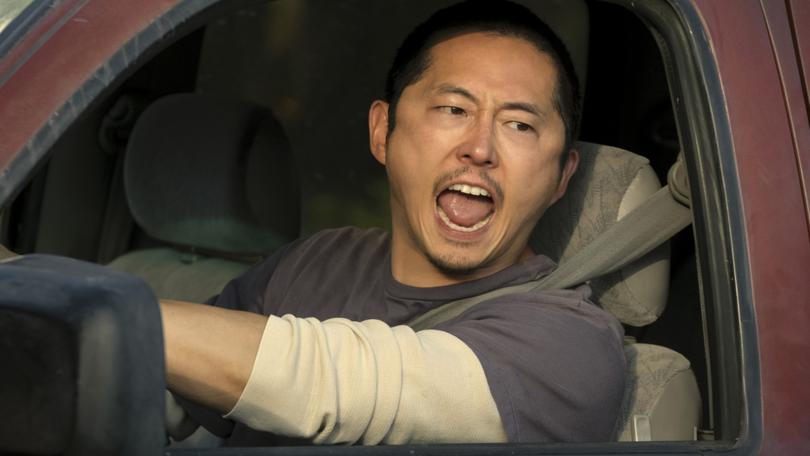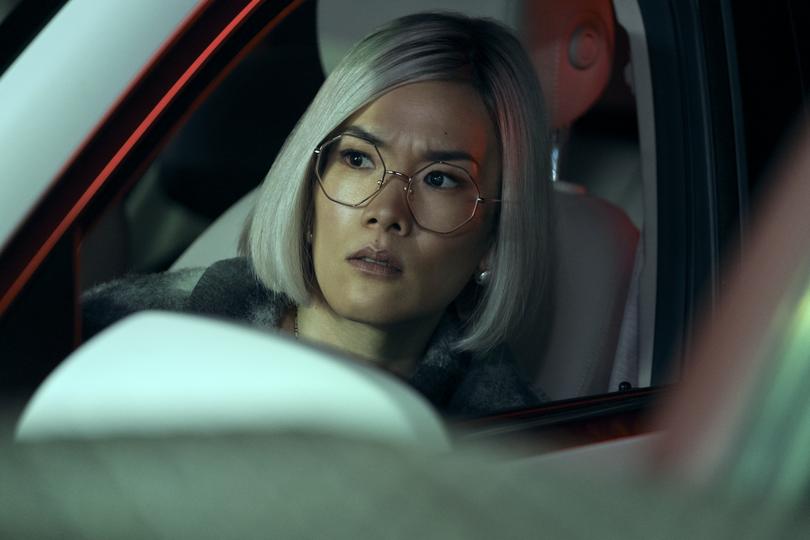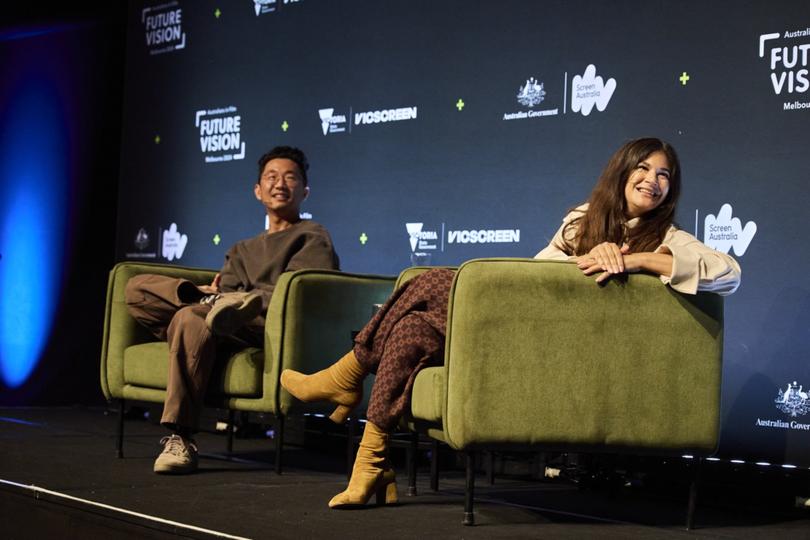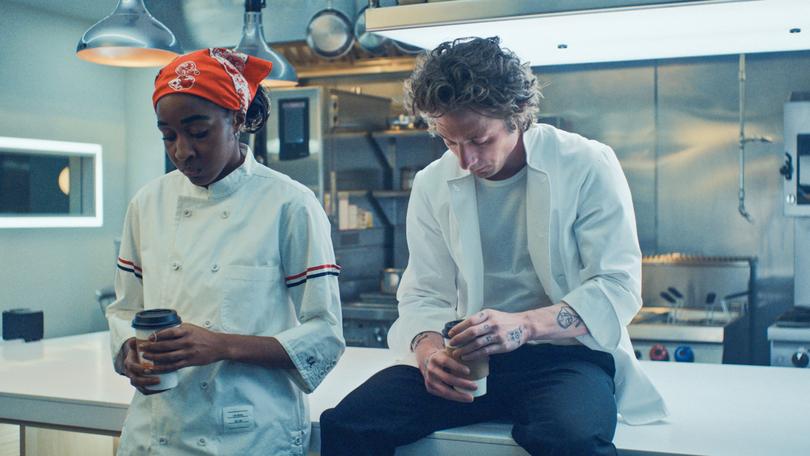FutureVision: Beef’s Lee Sung Jin and The Bear’s Joanna Calo on being authentically diverse
Diversity and representation is sometimes a box-ticking exercise, but not when you actually get it right.

If there were three TV shows everyone seemed to be talking about last year, it was The Bear, Beef and Succession.
The trio cleaned up all the gongs on the American awards circuit that was it was starting to feel like déjà vu. But the good kind.
Succession was on its fourth and final season, but Beef was a limited series and it felt as if a lot of people discovered The Bear for the first time in its second outing.
Sign up to The Nightly's newsletters.
Get the first look at the digital newspaper, curated daily stories and breaking headlines delivered to your inbox.
By continuing you agree to our Terms and Privacy Policy.There were many elements that were common to all three shows – superb performances, brilliant writing that had purpose and emotional truth – but what was distinct about Beef was that the show was an example of how you could tell the stories of people from non-white backgrounds without making their heritage or ethnicity the main thrust of their experience.
Starring Korean-American actor Steven Yeun and Vietnamese-Chinese-American actor Ali Wong, Beef is about two Los Angelenos who get into a road rage incident in the car park of a hardware shop. But instead of getting mad in the moment and then moving on with their days, one of them follows the other home and from there, it’s an escalating feud with bonkers and deadly consequences.
The road rage scuffle is an inciting incident for the characters, Amy (Wong) and Danny (Yeun), to confront the hidden rage, malaise and dissatisfactions in their lives.

Beef was created by Lee Sung Jin, a Korean-American filmmaker who was inspired by a road rage event in his own life.
When the series was released, it was praised for its raw honesty and wild entertainment value. And it wasn’t lost on audiences that this was an American series telling an American story starring two actors with Asian heritage and created by a Korean-American writer.
It’s partly why it felt so fresh – we actually had not seen this before. For Danny and for Amy, their cultural heritage was part of their story (for example Danny’s scenes at his community church), but it wasn’t why their stories were being told.
The difference is important. For Lee, the character is first.
“Now more than ever, you just have to keep focusing on your characters,” Lee said at the FutureVision summit in Melbourne, a conference for the local TV industry run by not-for-profit foundation Australians in Film.
“I want to write more stuff for Korean-American roles but I don’t want to do it just to do it.
“There has to be a reason, and in exploring that, not to feel like you’re exploiting anything.”
Lee was in conversation with Joanna Calo, the co-showrunner of The Bear, who was a consulting producer on Beef. The two have known each other for years and came up through the cut-throat industry together.

Lee and Calo, who is Latina-American, are part of the younger wave of Hollywood filmmakers who are approaching on-screen diversity and representation with authenticity.
They’re not interested in box-ticking exercises or having to be the one person in the room who is supposed to represent everyone with a similar background.
Calo added, “There was a thing for me where I felt like everyone wanted me to write their ‘whatever Hispanic’ thing, you know what I mean? And I was like, ‘I can speak to none of these, ultimately’, and actually turning down opportunities because I felt like it wasn’t authentic.”
Lee pointed to the shifts in the industry, both back and forth. “When we started, it was very different than now,” he said.
“The obstacles we faced were different. It seems like in this new era, there are a lot more opportunities than there were before. There is still a long way to go, of course, but now there’s almost a need to not just run with the identity thing.”

Lee explained that corporate mandates introduced by studios in past years are starting to change.
“They had the diversity phase and now they’re walking that back as well. It’s confusing because, on the corporate level, diversity doesn’t really mean that much to stock (prices). It’s hard then, as a human being, to try to navigate that.”
Lee and Calo’s work demonstrates it is possible to create characters who authentically feel as if they have history and different cultural heritages, they have texture and authenticity.
In Beef, it’s Amy and Danny, in The Bear, it’s Sydney, Marcus and Maria.
“The more you can have really strong characters, have them be fully dimensional, have really good story, all the stuff that’s actually the hard work of building this really strong foundation will mean that if it’s true for you, you get to make those kinds of things,” Calo said.

